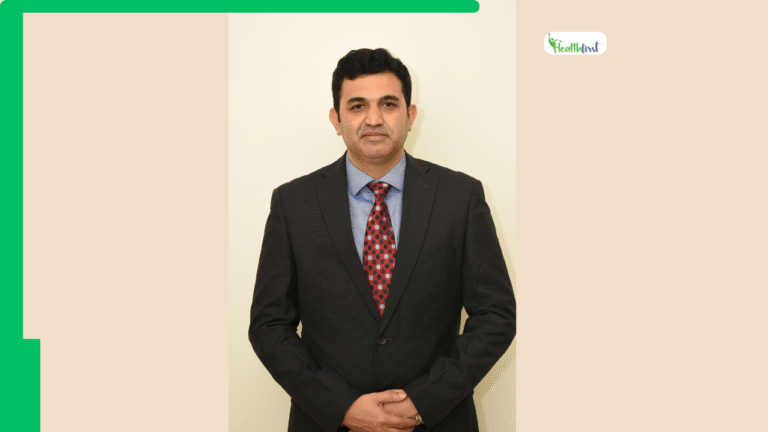Stress and anxiety have become prevalent health issues, affecting millions of people globally. While modern medicine offers a range of treatments, Ayurveda provides a holistic approach to managing mental well-being through natural therapies, lifestyle adjustments, and herbal remedies. This ancient system of medicine emphasizes the balance between the mind, body, and spirit, offering time-tested methods to combat stress and anxiety. Ayurvedic practices like meditation, breathing exercises (Pranayama), and the use of specific herbs such as Brahmi and Shankhpushpi are central to managing mental health naturally and effectively.
Ayurveda’s View on Stress and Anxiety
In Ayurveda, stress and anxiety are understood as imbalances in the body’s three doshas—Vata, Pitta, and Kapha. When these doshas are disturbed, it can lead to mental instability and emotional disturbances. Vata, the dosha associated with movement and nervous system function, is particularly prone to imbalance during times of stress. This imbalance can manifest as restlessness, anxiety, and even insomnia.
Ayurveda focuses on harmonizing the doshas through personalized treatments, which include diet, lifestyle changes, herbal remedies, and therapies like meditation and Pranayama. The ultimate goal is to bring about a state of calm, balance, and resilience in the face of stressors.
Market Trends: The Growing Interest in Ayurvedic Stress Management
The global wellness industry has seen a significant shift toward natural and holistic treatments for mental health issues, including stress and anxiety. According to a report by Allied Market Research, the global anxiety disorder and depression treatment market was valued at USD 14.51 billion in 2020 and is expected to reach USD 19.81 billion by 2030. Within this broader context, Ayurvedic solutions are gaining popularity as a complementary and preventive approach.
In India, the Ayurveda market is projected to reach USD 10 billion by 2026, driven by increasing consumer preference for natural remedies. Ayurvedic formulations for stress relief, including Brahmi and Shankhpushpi-based supplements, are in high demand both domestically and internationally. The post-pandemic era has especially seen a rise in people seeking mental well-being solutions rooted in Ayurveda.
Ayurvedic Therapies for Stress and Anxiety
- Meditation and Mindfulness
Meditation, one of the core practices in Ayurveda, plays a crucial role in calming the mind and alleviating anxiety. Regular meditation helps slow down the mental processes, reducing feelings of overwhelm and improving focus and emotional resilience. Ayurveda recommends practicing meditation daily to maintain mental balance and inner peace.
- Market Insight: The global meditation market is expected to grow at a CAGR of 10.4% from 2022 to 2030, reaching USD 9 billion by 2030. This growth is fueled by the increasing awareness of mental health and the demand for stress-relief techniques, with Ayurveda-based meditation gaining significant traction.
- Pranayama (Breathing Exercises)
Pranayama, or yogic breathing exercises, is a fundamental practice in Ayurveda to control and regulate the flow of Prana (life force). By calming the nervous system and reducing the impact of stress hormones like cortisol, Pranayama helps in restoring mental balance and emotional stability. Techniques like Nadi Shodhana (alternate nostril breathing) and Bhramari (humming bee breath) are particularly beneficial for managing anxiety and promoting relaxation.
- Market Insight: The yoga and Pranayama market has seen immense growth, with the global yoga industry expected to reach USD 66.2 billion by 2027. Ayurvedic breathing exercises are becoming more mainstream as people seek out holistic approaches for stress management and mental well-being.
Ayurvedic Herbs for Mental Well-being
- Brahmi (Bacopa monnieri)
Brahmi is a renowned Ayurvedic herb known for its cognitive-enhancing and adaptogenic properties. It helps reduce anxiety, improve mental clarity, and promote relaxation without causing drowsiness. Brahmi works by regulating the levels of serotonin and dopamine, the brain’s “feel-good” chemicals, helping in stress relief and emotional balance.
Several studies have confirmed Brahmi’s role in reducing stress-induced anxiety. It has been shown to improve memory and cognitive function, making it a preferred herb for both stress relief and brain health.
- Market Insight: The Brahmi supplements market is growing, especially in the U.S., Europe, and India. With consumers increasingly seeking natural alternatives for mental health, Brahmi’s popularity as a stress-relief supplement has surged. The global market for Brahmi extracts is expected to expand at a CAGR of 5.6% over the next five years.
- Shankhpushpi (Convolvulus pluricaulis)
Shankhpushpi is another powerful herb in Ayurveda known for its calming and rejuvenating effects on the nervous system. It helps to alleviate anxiety, mental fatigue, and stress while improving cognitive function and sleep quality. Shankhpushpi acts as a natural tranquilizer, reducing the body’s response to stress and promoting a sense of calm and relaxation.
Ayurvedic practitioners often recommend Shankhpushpi in combination with other herbs like Brahmi to enhance mental clarity and reduce stress-induced cognitive issues.
- Market Insight: Shankhpushpi-based formulations are gaining traction, especially in the Ayurveda supplement market. Consumers are drawn to its multifaceted benefits, particularly in stress management and mental wellness. India and Southeast Asia lead the demand, with growth projected to reach USD 2.5 billion by 2027 in the herbal supplement market.
Lifestyle Practices to Manage Stress in Ayurveda
Ayurveda emphasizes a balanced daily routine (Dinacharya) and seasonal routine (Ritucharya) to manage stress and maintain mental well-being. Following a structured routine helps to regulate the body’s natural rhythms and prevent the build-up of stress. Here are some key Ayurvedic practices:
- Abhyanga (Self-Massage): Daily self-massage with warm oils like sesame or coconut oil helps in calming the nervous system and relieving stress. Abhyanga is said to nourish the skin, muscles, and nerves, enhancing overall mental stability.
- Diet for Mental Well-being: A Sattvic (pure) diet that includes fresh fruits, vegetables, whole grains, and herbs is recommended to promote mental clarity and reduce stress. Avoiding stimulants like caffeine and spicy, processed foods helps in calming the mind and maintaining balance.
- Sleep and Rest: Ayurveda places immense importance on proper sleep (Nidra) for maintaining mental health. Regular sleep patterns, along with calming rituals before bedtime, help in reducing anxiety and stress. Ayurvedic herbs like Ashwagandha and Shatavari are often used to promote better sleep and relaxation.
Ayurveda’s Holistic Approach to Stress and Anxiety
Ayurveda offers a comprehensive approach to managing stress and anxiety by addressing the root causes of mental imbalances. Through the integration of meditation, Pranayama, herbal remedies like Brahmi and Shankhpushpi, and lifestyle modifications, Ayurveda helps in achieving a state of mental calm and emotional resilience.
With the increasing awareness of mental health and a rising demand for natural, non-invasive treatments, Ayurveda’s role in managing stress and anxiety is gaining recognition worldwide. As the global market for Ayurvedic supplements and therapies continues to expand, more individuals are turning to this ancient science for sustainable mental well-being.









